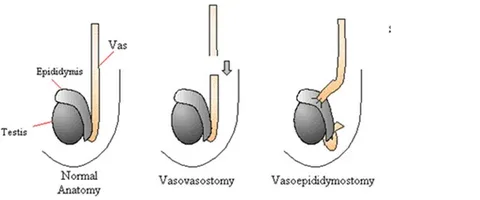A vasectomy is a widely used and highly effective form of male contraception. It involves cutting or sealing the vas deferens to prevent sperm from mixing with semen during ejaculation. Many men opt for this procedure when they are confident that they do not want more children. However, life circumstances sometimes change, leading to the question: Can you really reverse a vasectomy? A deep dive into the facts will help clarify this topic.
What Is a Vasectomy Reversal?
A vasectomy reversal is a surgical procedure aimed at restoring fertility by reconnecting the vas deferens. The goal is to enable sperm to once again travel from the testes to the ejaculate, potentially allowing natural conception.
The reversal procedure is more complex than the initial vasectomy and requires specialized microsurgical techniques to increase the chances of success.
Success Rates: Can You Really Reverse a Vasectomy?
One of the most common questions men ask is: Can you really reverse a vasectomy? The answer depends on several factors including:
- Time since vasectomy: The shorter the interval, the higher the success rate. Reversals performed within 10 years of the vasectomy typically have better outcomes.
- Age and fertility of both partners: Female fertility plays a crucial role in achieving pregnancy post-reversal.
- Surgical technique and expertise: Skilled microsurgeons have higher success rates.
Generally, vasectomy reversals have a success rate ranging from 40% to 90% in terms of restoring sperm to the ejaculate, but the actual pregnancy rates tend to be lower due to other fertility factors.
Alternatives to Vasectomy Reversal
In cases where reversal is not successful or not desired, other fertility options exist:
- In Vitro Fertilization (IVF) with sperm retrieval: Sperm can be directly extracted from the testes and used for IVF.
- Donor sperm: Some couples may choose this if reversal or IVF is not viable.
These alternatives offer hope for couples facing infertility after a vasectomy.
Risks and Considerations
Like any surgery, vasectomy reversal carries risks such as infection, bleeding, and chronic pain. Moreover, success is not guaranteed, and couples should be prepared for the possibility that natural conception might not occur.
Conclusion
So, can you really reverse a vasectomy? A deep dive into the facts reveals that yes, reversal is possible and can restore fertility in many cases. However, success depends on multiple factors, and it is not guaranteed. Men considering reversal should consult with a qualified urologist or fertility specialist to discuss individual circumstances and explore all options.


